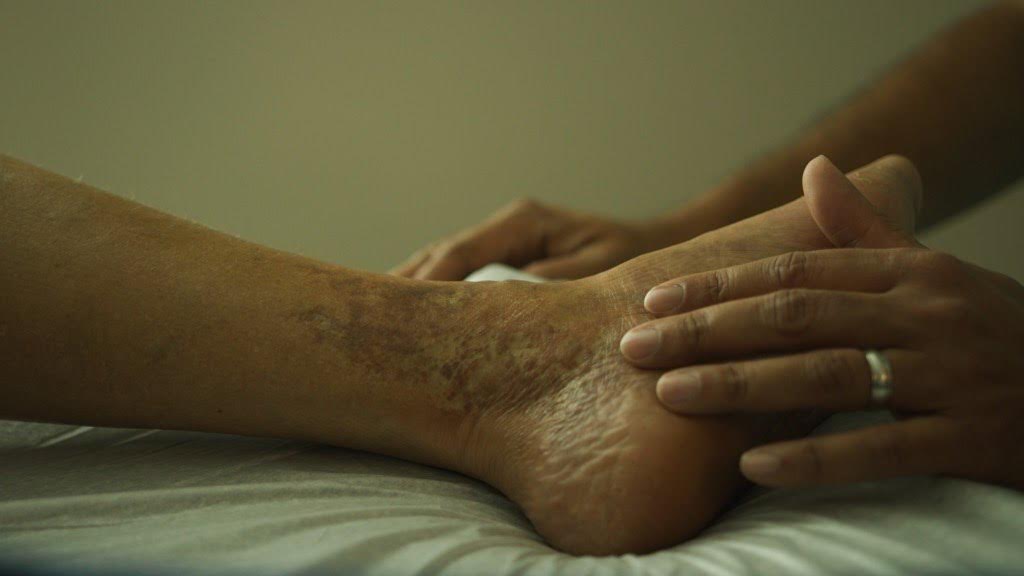Advanced Vascular Treatments for Blood Clots
Advanced Vascular Treatments for Blood Clots in Jacksonville, Florida: A Lifesaving Approach by Well&You

Blood clots, medically known as thrombosis, can pose a significant threat to one’s health, potentially leading to conditions such as deep vein thrombosis (DVT), pulmonary embolism (PE), or stroke. Fortunately, modern medicine around the world, including here in the First Coast Jacksonville and South Georgia, has made significant strides in developing vein and vascular treatments for blood clots that are both effective and minimally invasive. In this article, Dr. Ragu Murthy, vein specialist and cardiologist at Well&You vein clinic in North Florida will explore advanced vascular treatments for blood clots, highlighting their lifesaving potential and the benefits they offer over traditional approaches.
Understanding Blood Clots
Blood clots are essential for the body’s natural healing processes, as they prevent excessive bleeding after an injury. However, when clots form inappropriately within blood vessels, they can obstruct blood flow and lead to serious complications. Blood clots can occur in various parts of the body, including deep veins (DVT), the lungs (PE), and arteries (arterial thrombosis).
Traditional Approaches to Blood Clot Treatment
Historically, the management of blood clots involved hospitalization, anticoagulant medications (blood thinners), and, in severe cases, surgical interventions by vascular surgeons. While these methods have been effective, they are not without limitations and risks. Hospital stays can be lengthy, blood thinners may require strict monitoring, and vascular surgery can be invasive, carrying risks of complications.

Advanced Vascular Treatments in Florida for Blood Clots
Recent advances in vascular medicine have brought forth minimally invasive treatments for blood clots, offering several advantages over traditional approaches. Here are some of the cutting-edge vascular treatments that can be performed in outpatient vein clinics:
1. Catheter-Directed Thrombolysis (CDT): CDT is a minimally invasive procedure in which the vein specialist doctor a catheter is inserted directly into the clot, allowing the delivery of clot-dissolving medications directly to the site. This targeted approach helps to break down the clot quickly, restoring blood flow while minimizing the need for systemic anticoagulation.
2. Thrombectomy: Thrombectomy involves the vein specialist physician using of specialized devices to mechanically remove the clot from the affected blood vessel. This procedure is particularly effective for large clots that may not respond well to medications alone. It can rapidly restore blood flow and reduce the risk of complications.
3. Inferior Vena Cava (IVC) Filters: In some cases, particularly when there is a high risk of recurrent pulmonary embolism, a vein specialist implants an IVC filter. This small device is placed in the inferior vena cava to trap and prevent clots from traveling to the lungs.
4. Venous Stenting: In cases of chronic venous thrombosis, where the vein remains blocked even after clot removal, a skilled vein specialist doctor performs venous stenting. Performed in an outpatient vein clinic setting, the vein specialist places a stent to keep the vein open and maintain proper blood flow.
Benefits of Advanced Vascular Treatments
The introduction of these advanced vein treatments offers numerous benefits:
1. Minimally Invasive: These procedures are performed in outpatient vein clinics through small incisions, reducing the risk of complications and the need for extensive recovery.
2. Faster Recovery: Patients undergoing minimally invasive treatments typically experience shorter vein clinic stays and quicker recovery times compared to traditional surgeries.
3. Preservation of Vascular Function: These treatments performed by skilled vein specialists aim to preserve the function of affected veins and arteries, reducing the risk of long-term complications.
4. Lower Risk of Complications: Minimally invasive approaches carry a lower risk of infection and other complications associated with open surgery performed by vascular surgeons.
5. Improved Quality of Life: Rapid resolution of blood clots often results in less pain, improved mobility, and an overall better quality of life for patients.

Conclusion
Advanced vascular treatments for blood clots represent a significant advancement in the field of vascular medicine. These minimally invasive procedures offer lifesaving potential, rapid clot resolution, and improved outcomes for patients with thrombosis. If you or someone you know is diagnosed with a blood clot, it is crucial to consult with a vascular specialist who can assess the specific case and recommend the most suitable treatment approach. These advanced vascular treatments have revolutionized the management of blood clots, providing hope and improved vascular health for countless individuals worldwide.
About Dr. Murthy
For almost two decades, Dr. Murthy has saved lives, healed wounds and relieved debilitating pain, restored people’s ability to walk, and improved their quality of life. Dr. Ragu Murthy has had the privilege of serving his community as an invasive cardiologist at the University of Florida’s busiest Trauma hospitals and as a founding director of St. Vincent’s Vein Institute in Jacksonville, Florida. A physician in high demand, Dr. Murthy pioneered and performed deep and superficial vein procedures — from advanced deep vein treatments to treatment of symptomatic varicose veins.
About Well&You
Well&You is making vein and vascular health kinder, easier, and better. Our roots in cardiology means we think holistically about bodies, hearts, minds, families and communities. We focus on health and the quality of living.